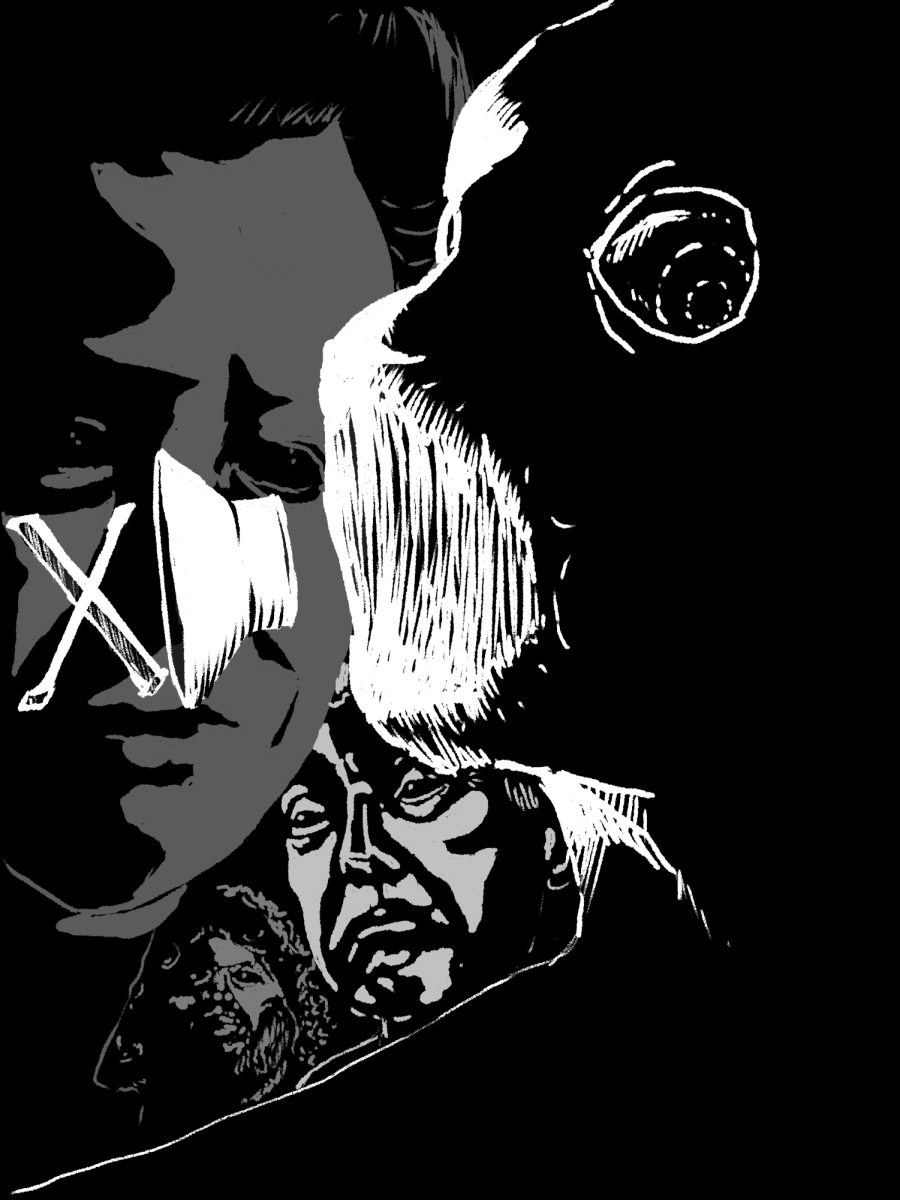
In 1857, Frederick Douglas was quoted as saying, “Power concedes nothing without a demand. It never did and it never will.” There are many serious issues facing the world, and those in power have shown little initiative in addressing them. It is increasingly clear that issues such as global warming, inequality and racism will require strong popular movements for progress to be made.
As a reporter for The Pioneer over the past two years, I’ve had the opportunity to observe the struggles of both the divestment and anti-racism movements on campus. During that time, the movements have experienced varying degrees of success. Even though both movements are far from over, so far the anti-racism activists are making progress while the divestment movement is struggling. Because effective activism is needed to address racism, global warming and inequality, it is important to examine why one movement has succeeded in creating institutional change while the other has failed. The answer lies in the clarity of their message, their willingness to cause controversy and their means for approaching power on campus. These are my thoughts and opinions, as an observer and documenter of these movements.
Once Upon a Time…
The most important thing a movement has is its narrative: the story of its values, goals and opponents. A clear narrative can bring in supporters and create the perception of momentum and influence, which are helpful when negotiating power structures, such as the Whitman administration and Board of Trustees, while a muddled narrative fosters confusion and makes it easier for the movement to be dismissed.
From the first time I spoke with them, anti-racism activists had a strong sense of what they wanted the narrative of their movement to be. Though the rally that kicked off the movement was strongly associated with a conflict generated by an argument online, activists consistently emphasized that they were out to address institutional issues, and any single incident was merely a symptom of the wider problem on campus. The need for change was urgent, personal and compelling, and based in the moral right to safety, equality and respect for all students. What’s more, their immediate goals were condensed into three demands, which were posted for all to see in their letter to the Board of Trustees.
Divestment activists, on the other hand, had a much vaguer message. While the goal of divestment is to prompt the college to withdraw all funds from fossil fuel companies in order to signal that they have lost legitimacy, thereby creating political will for serious reform beyond college campuses, it took several months for the movement to articulate this. Many students (including some activists within the movement) were under the false impression that divestment was meant to cause companies to go bankrupt. While activists quickly recognized this confusion and worked to correct it, administrators capitalized on the mistake in their eventual rejection of divestment’s goals by pointing out that divestment would not directly affect companies’ finances.
In addition to needing a clearer narrative, the divestment movement would do well to learn from the anti-racism movement’s emphasis on moral urgency. Divestment’s discussion of global warming primarily focused on parts per million of carbon dioxide in the atmosphere, a technique borrowed from the national divestment movement’s leader, Bill McKibben. This fall, more than 6,000 people were killed, and 3.9 million were forced from their homes by Typhoon Haiyan. While activists at Whitman have remained fixed on climate threats and the carbon meter, real people are dying. Divestment activists are right to be cautious about referring to people in distant countries in a way that may generalize or dehumanize them, but it is possible to connect the very real, very human ongoing disaster caused by fossil fuels. Activists may feel uncomfortable bringing emotional and ethical arguments to the forefront, but if the choice is between feeling comfortable and being effective, we need activists who choose the latter.
Whitman Isn’t a Democracy
“Conversation” and “dialogue” are nearly always hauled out as the answer whenever conflict crops up on campus, and both divestment and anti-racism began their campaigns with this approach. However, while the divestment movement’s dialogue focused on persuading everyone on campus to agree with divestment and to have the college divest out of genuine moral decency, anti-racism activists focused on rallying the support of those who would easily agree with them and then use this influence to maneuver politically within the administration and create institutional change.
If Whitman’s policies were determined by popularity among the community, the divestment movement’s approach to conversations may have been effective. However, in reality, decisions are made by a small group of people who are not only not elected but spend most of their time away from campus and know nothing about students’ general sentiment. (If they did, our tuition wouldn’t be headed for $60,000 a year.)
The anti-racism movement was able to gain traction because it posed a threat to Whitman’s marketing itself as a diverse liberal arts college, thereby forcing the administration to take action to protect Whitman’s image. While it would be difficult for divestment activists to take the same approach, since climate change does not yet affect students on campus to the same extent as racism, some form of realpolitik will be needed to affect change.
In a way, Whitman is a miniature version of the larger world. Global warming is a problem because those in power make decisions based primarily on finances and capitalist efficiency. Ethics play a peripheral role and are often manipulated to justify economic decisions after the fact. If we can’t force the college’s trustees to step away from making decisions based on short-term profit, how can we expect to change governments and corporations? To affect real change, activists need to realize that change needs to be a demand, not a dialogue.
Radical Measures
If divestment is truly part of the solution for global warming, then everything must be done to make it happen. Personally, I don’t believe the change needed to save the planet can be brought about by demonstrations of political will or dialogue within existing economic and political structures, which is why I do not support divestment. However, if divestment advocates truly believe their strategy will work, then the movement’s success should be their sole goal. Activists cannot be effective if their primary concern is remaining popular among administrators, or even the student body as a whole. The anti-racism movement has shown it is possible to make some people profoundly uncomfortable and still succeed through the intelligent use of power, and divestment should look to their example.
The Whitman community is never going to be able to form a consensus about divestment, and those in charge of managing the endowment are never going to be convinced to divest from fossil fuels out of the goodness of their hearts. If one is not handed change, one must take it, as the anti-racism movement has. For the divestment movement, now is the time to rally their supporters, strengthen their base and prepare for a serious conflict aimed at making divestment a political necessity for the college.













